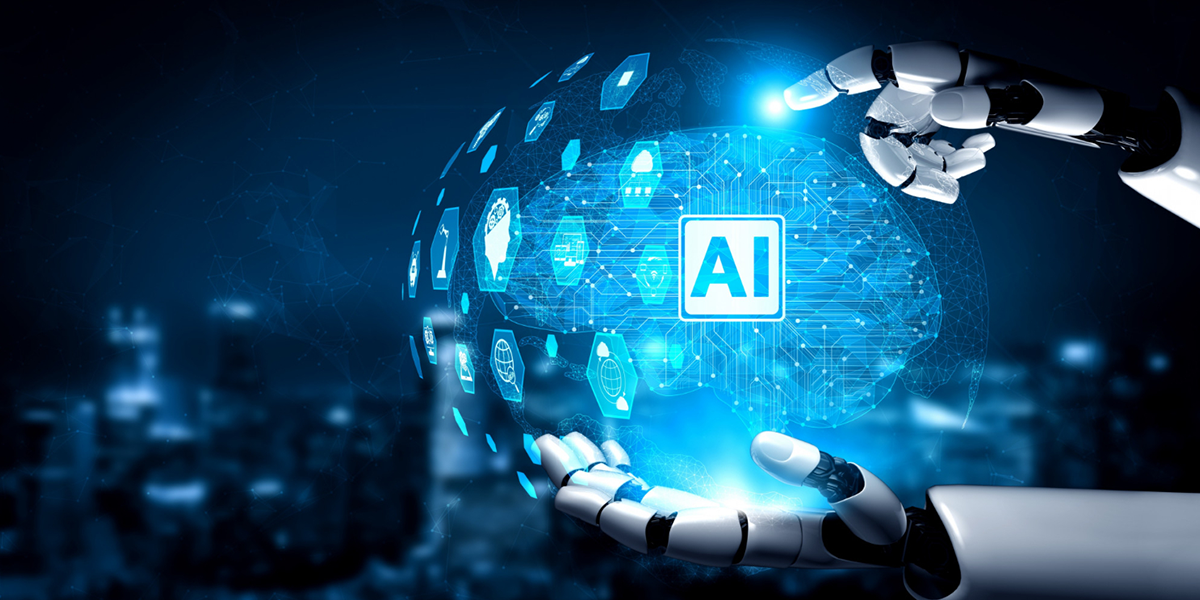AI digital transformation: Revolutionizing business operations

Highlights
- AI is driving business transformation – Companies that integrate AI enhance efficiency, automate workflows, and make smarter decisions.
- Data-driven insights fuel growth – AI-powered analytics helps businesses predict demand, optimize operations, and personalize customer experiences.
- Automation is the key to scalability – AI streamlines repetitive tasks, reduces errors, and improves collaboration across teams.
- Overcoming AI adoption challenges – Businesses must tackle data privacy, talent shortages, and integration hurdles to maximize AI’s potential.
- The future of AI is now – Trends like explainable AI, hyper-automation, and AI-powered cybersecurity are reshaping industries worldwide.
You’re reviewing your morning agenda when familiar challenges arise—streamlining workflows, identifying inefficiencies, and optimizing costs without straining resources. With teams operating at full capacity, the need for a scalable, intelligent solution is clear. AI digital transformation is redefining business operations, enhancing efficiency, and enabling data-driven decision-making.
According to PwC, AI could contribute up to $15.7 trillion to the global economy by 2030, with some countries experiencing up to a 26% GDP boost. Companies that fail to adopt AI risk falling behind competitors who are already leveraging its potential to improve productivity, optimize processes, and drive customer satisfaction.
What is AI digital transformation?
AI digital transformation refers to integrating artificial intelligence into business processes to optimize operations, enhance decision-making, and drive growth. AI capabilities range from predictive analytics and automation to intelligent chatbots and personalized customer experiences. This transformation is not just about adopting new technology—it’s about creating a seamless blend of human expertise and machine intelligence to unlock new business opportunities.
Read more: Driving AI adoption growth: How Netscribes transformed a leading US retailer
Why businesses can’t afford to ignore AI
The pace of technological advancement is accelerating. Businesses that fail to embrace AI risk falling behind competitors already using it to gain a significant edge. A recent PwC report estimates that AI could contribute up to $15.7 trillion to the global economy by 2030, with the potential to boost GDP by up to 26% in some countries. Whether it’s improving supply chain efficiency or predicting market trends, AI can boost productivity, streamline operations, and deliver customer experiences that build loyalty.
The building blocks of AI digital transformation
- Automated processes
Automation powered by AI is central to digital transformation, enabling businesses to handle repetitive tasks with unmatched speed and precision. By leveraging advanced technologies like machine learning and natural language processing, organizations streamline workflows, reduce manual errors, and improve operational efficiency. - Data-driven decisions
AI’s ability to process and analyze vast datasets empowers businesses to make accurate and timely decisions. Real-time analytics, predictive modeling, and AI-powered forecasting tools enable organizations to identify patterns, uncover insights, and act on data with confidence. - Personalized customer experiences
AI allows businesses to understand customer preferences and behaviors at an unprecedented level. By analyzing data points across various touchpoints, organizations can deliver personalized interactions that improve customer satisfaction, loyalty, and retention. - Enhanced collaboration
AI-powered tools facilitate collaboration by simplifying communication and project management. From virtual assistants to intelligent task automation, these tools enable teams to work seamlessly, regardless of geographical or functional boundaries, fostering efficiency and innovation.
Read more: Cutting through the red tape
Industries leading the AI revolution
1. Healthcare
AI is revolutionizing healthcare in the United States by enhancing diagnostics, personalizing treatment plans, and improving resource allocation. A recent report by McKinsey indicates that over 70% of U.S. healthcare organizations are pursuing or have implemented generative AI capabilities to improve patient care and operational efficiency.
2. Retail
Adobe is leveraging AI to enhance its creative software offerings, such as Photoshop and Acrobat, aiming to expedite creative processes and improve document management. This integration of AI in retail software tools underscores the technology’s role in streamlining operations and enhancing customer experiences.
3. Manufacturing
Baker Hughes is utilizing AI for predictive analytics in oil and gas operations, enhancing operational efficiencies and supporting the transition to renewable energy sources. This application of AI in manufacturing processes highlights its potential to reduce downtime and optimize production.
4. Finance
ServiceNow is integrating AI into its products to automate workflows and enhance front-office software, including customer service management. This strategy aims to drive revenue growth and improve operational efficiency in the finance sector.
Challenges in AI digital transformation
1. Data privacy and security
AI systems rely on large datasets to function effectively. Handling sensitive customer or business data comes with risks, including breaches and misuse. A report by IBM Security highlighted that the global average cost of a data breach reached $4.45 million in 2023.
Solution: Companies must adopt strong cybersecurity measures and comply with GDPR, CCPA, and industry-specific regulations.
2. Talent shortages
The global demand for AI specialists has led to significant talent shortages, making it challenging for organizations to find skilled professionals to develop, deploy, and manage AI systems. The World Economic Forum’s Future of Jobs Report 2023 highlights that AI and Machine Learning Specialists are among the fastest-growing job roles globally.
Solution: Businesses must invest in AI training programs and partner with universities and AI research labs.
3. Integration complexities
In 2025, organizations will need to carefully prioritize and allocate resources to both innovation initiatives and process optimization efforts. This may involve implementing robotic process automation (RPA) and intelligent automation solutions to streamline repetitive tasks, while simultaneously investing in emerging technologies like artificial intelligence, blockchain, and the Internet of Things (IoT) to drive innovation and create new value propositions.
Solution: Start with incremental AI adoption, using hybrid models to integrate AI while preserving critical business functions.
4. Resistance to change
According to a December CNBC SurveyMonkey Workforce survey, 60% of employees who use AI regularly reported they worry about its impact on their jobs.Seventy-two percent of respondents who use the technology recognize that automation significantly increases productivity.
Solution: Implement AI upskilling programs to help employees transition into AI-enhanced roles.
5. Ethical and bias concerns
AI systems can sometimes reinforce biases present in the data they’re trained on, leading to unfair or discriminatory outcomes. The Stanford AI Index Report 2023 emphasized the need for explainable AI and ethical frameworks, as 65% of businesses reported encountering bias-related challenges in their AI models.
Solution: Use explainable AI frameworks to ensure transparency and fairness in AI decision-making.
The future of AI in business
The future of AI digital transformation is promising. Emerging trends like explainable AI, hyper-automation, and industry-specific AI solutions will continue to shape the business landscape. Research from IDC predicts global spending on AI systems will reach $300 billion by 2026, highlighting its growing importance across industries.
Key Future Trends:
- AI-powered cybersecurity solutions to combat digital threats.
- Blockchain integration to enhance AI data security.
- Crowdsourced AI platforms for rapid model training and validation.
How to start your AI digital transformation journey
If you’re considering AI, here’s how to get started:
- Identify operational bottlenecks: Pinpoint areas where inefficiencies or repetitive tasks slow you down.
- Define clear objectives: Determine what you want to achieve with AI, such as cost savings, improved decision-making, or enhanced customer experiences.
- Choose the Right Tools: Invest in AI solutions aligned with your goals that integrate smoothly into existing workflows.
- Train your workforce: Equip employees with the skills to effectively collaborate with AI tools.
- Monitor and adjust: Regularly evaluate the impact of AI and refine strategies as needed.
Read more: In-depth market intelligence on the use of AI in cyber insurance and security
Closing thoughts
AI digital transformation is reshaping business operations, paving the way for a smarter, more efficient future. Companies that embrace AI now will be positioned for long-term success and competitive advantage.
The time to transform is now. Are you ready?
Discover how our expertise can drive your AI transformation.






